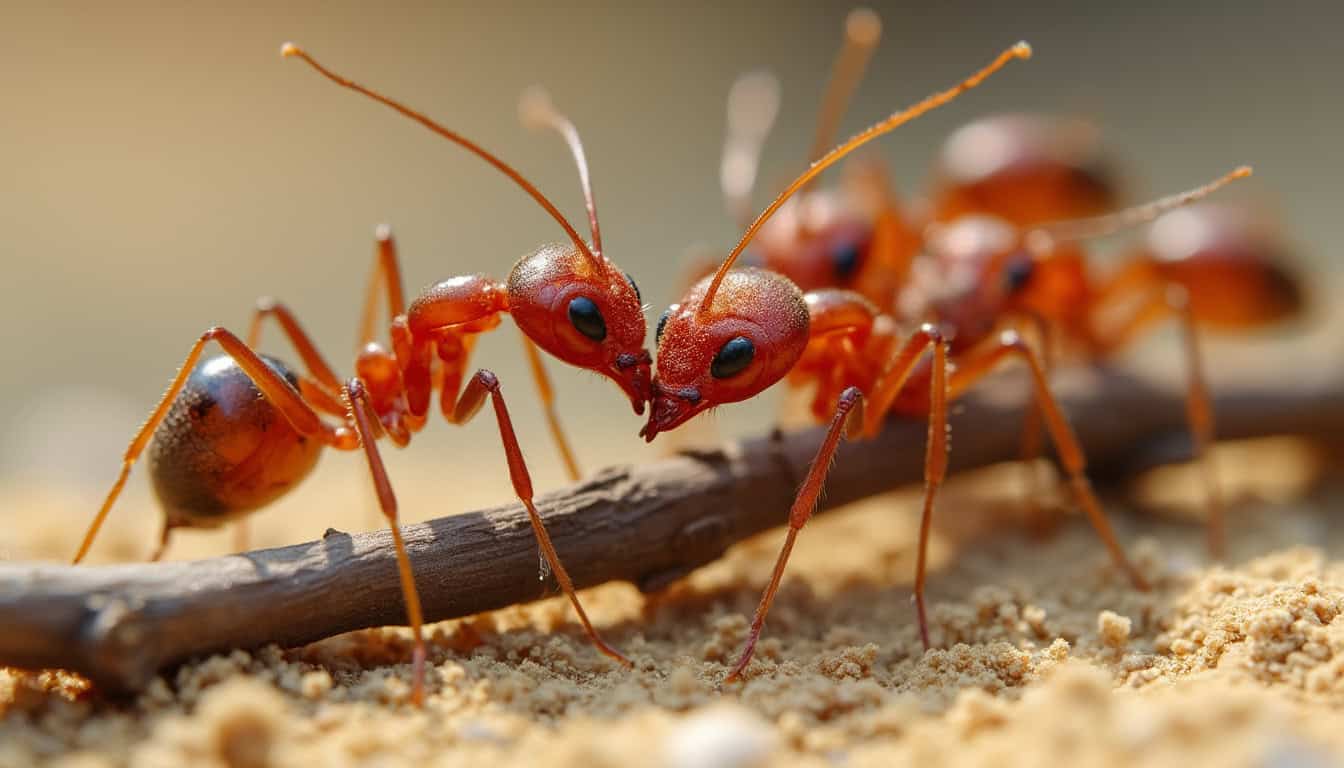Leading Ant Control Services: Reliable Solutions for Your Home or Organization
Leading Ant Control Services: Reliable Solutions for Your Home or Organization
Blog Article
Environmental Influence of Bug Control: Balancing Performance With Sustainability
The ecological impact of pest control is a crucial concern that requires a fragile balance in between accomplishing effectiveness in taking care of bugs and guaranteeing sustainability of our ecosystems. As we aim to safeguard our plants, homes, and health and wellness from the risks postured by bugs, the methods we utilize can accidentally damage the environment. From the use of damaging chemicals that permeate right into our dirt and water to the unexpected consequences on non-target varieties, the repercussions of standard pest control techniques are far-reaching. Nevertheless, there are arising techniques that supply hope for a much more lasting approach to pest administration. These services not just purpose to deal with the prompt pest issues yet also think about the lasting health of our planet.
Unsafe Chemicals in Pest Control
The use of hazardous chemicals in pest control poses significant ecological and health threats that require mindful consideration and reduction methods. Herbicides, pesticides, and insecticides are commonly made use of to remove bugs, however their widespread application can bring about unintended effects. These chemicals can pollute soil, water resources, and the air, impacting not only the targeted parasites yet likewise beneficial pests, wild animals, and people.

To address these risks, integrated parasite monitoring (IPM) methods are being promoted as a more lasting option. IPM entails a combination of techniques such as biological control, environment adjustment, and the targeted use chemicals as a last resource (ant control mathews nc). By embracing an alternative approach to pest control, we can minimize the environmental and wellness effects related to unsafe chemicals while successfully handling pest populations
Effect On Non-Target Species
Taking into consideration the unintended effects of parasite control techniques, the impact on non-target species is a vital element that needs extensive assessment. While pest control actions intend to target certain bugs, various other microorganisms in the environment might be inadvertently impacted. Non-target types, including useful pests, birds, mammals, and even plants, can experience straight or indirect harm from pesticide applications or organic control techniques.
Pesticides can have sub-lethal or lethal results on non-target varieties. Pesticides developed to deal with a specific insect parasite might damage pollinators like or all-natural killers such as ladybugs. In addition, chemical residues can collect in the environment, impacting non-target organisms in time. Similarly, biological control agents, if not species-specific, can present risks to unexpected targets, interrupting the eco-friendly equilibrium.
To minimize the influence on non-target species, integrated pest administration (IPM) techniques that highlight an alternative approach to pest control are recommended. These techniques prioritize using environmentally pleasant practices, minimizing harm to useful organisms while properly managing pest populations. Conducting thorough threat assessments and monitoring the end results of bug control initiatives are necessary action in safeguarding non-target varieties and promoting total ecological community wellness.
Soil and Water Contamination
Unintended environmental effects of pest control approaches extend beyond affecting non-target species, with considerable implications for soil and water contamination. Pesticides, herbicides, and chemical plant foods made use of in pest control can seep into the dirt and pollute groundwater, positioning a danger to both aquatic and earthbound ecological communities. Dirt contamination can interrupt the balance of microorganisms crucial for nutrition biking and plant development, causing lowered dirt fertility and efficiency. These chemicals can continue in the setting for prolonged periods, accumulating in the dirt and potentially getting in the food chain.
Water contamination is one more vital Resources issue linked with insect control techniques. To alleviate soil and water contamination from pest control activities, integrated bug management strategies that focus on sustainability and lessen chemical inputs are important.
Air Pollution From Pesticide Usage
Exposure to air-borne pesticides throughout farming applications postures a substantial issue for air pollution control actions. In addition, pesticide drift, where chemicals are carried by the wind to unintentional locations, can lead to the contamination of nearby ecosystems and water bodies.

Methods for Sustainable Parasite Control
In the world of agricultural methods, implementing sustainable bug control approaches is paramount for maintaining environmental balance and securing plant returns. Lasting parasite control emphasizes making use of eco-friendly methods to take care of pest populations effectively while reducing damage to non-target microorganisms and environments. Integrated Insect Monitoring (IPM) is a widely taken on method that combines biological, cultural, physical, and chemical control methods to attain long-lasting pest monitoring options.
Crop rotation and diversity are likewise efficient techniques to interrupt pest life cycles and produce much less positive conditions for bugs to grow. Eventually, by incorporating these lasting bug control techniques, farmers can attain a balance between pest monitoring efficiency and environmental stewardship.
Verdict
Finally, the ecological impact of parasite control techniques have to be carefully thought about to stabilize performance with sustainability. Hazardous chemicals made use of in bug control can cause soil and water contamination, air pollution, and damage non-target varieties - termite control. It is crucial to execute sustainable bug control strategies to reduce these unfavorable results on the environment and promote a much healthier ecological community for future generations
By adopting an alternative technique to pest control, we can decrease the environmental and health and wellness influences associated with damaging chemicals while effectively managing pest populations.

To reduce the air pollution caused by pesticide usage, it is important to take on integrated pest monitoring methods that focus on the use of non-chemical pest control approaches, such as crop turning, natural killers, and resistant plant ranges. Lasting parasite control emphasizes the use of ecologically pleasant methods to handle parasite populations efficiently while minimizing damage to non-target microorganisms and ecosystems. Integrated Bug Monitoring (IPM) is a commonly taken on approach that integrates organic, social, physical, and chemical control methods to accomplish lasting pest administration remedies.
Report this page